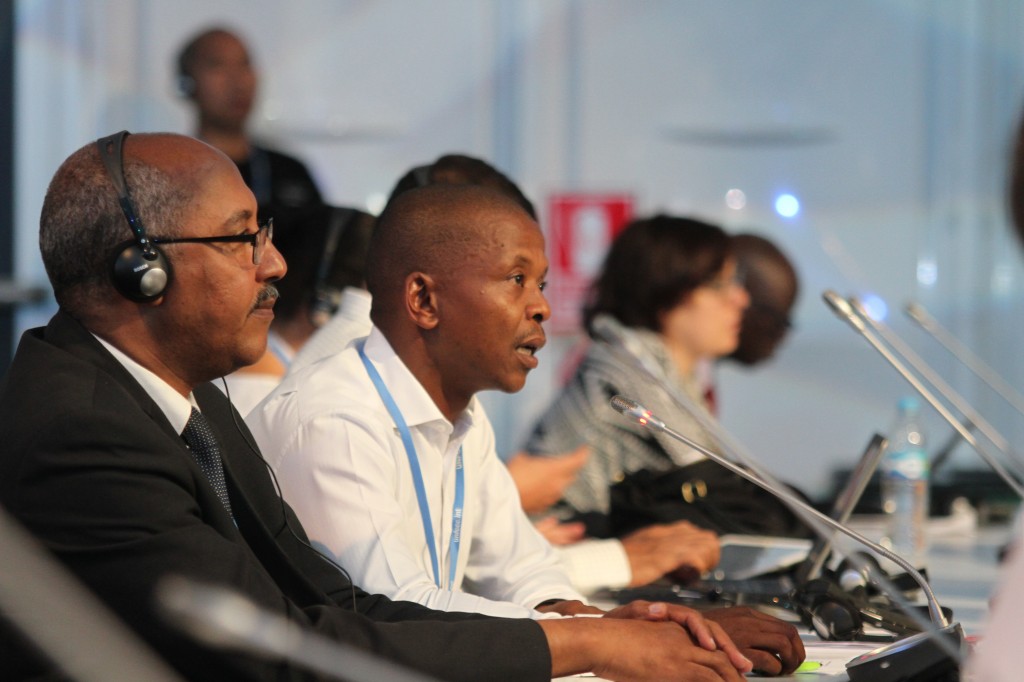On Saturday, when all should be done and dusted at the UN climate talks in Lima, Peru, negotiators from over 195 countries are still ‘debating’ on the text. Divisions have been evidently wide among countries in respect to the elements of the text. Sudan on behalf of African Group was the first to retract. “The decision infringes on a number of important aspects of African group. We need proper consideration.”
The feeling across a good number of the countries is that the elements of the text are not balanced. They lean more on mitigation and less on other elements like adaptation, finance, technology transfer and loss and damage. “The concerns of Africa should be listened to.”
Even before the negotiations kicked off, the African group’s position has always been the negotiations should be under the convention in order to ensure a successful outcome form Lima.
The statement, “Africa is not ready to proceed on the basis of the text presented” certainly set the stage for a string of other countries supporting the idea that the African group’s critical push for mitigation and ambition to be treated in “parity” with financial, technical and capacity support.
It is however difficult to reach a compromise when different countries pull ropes in on their sides. Differentiation between the role of developed and developing countries remains vague in the text. Developing countries seem to be put on the same level with developed countries with respect to the various responsibilities, especially in regards to mitigation.
As most developing countries need to urgently adapt to climate change, developed countries are pushing for mitigation to be given prominence while many African countries feel like their adaptation needs have been ignored.
Each and every speech made by countries over the last few days has clearly illustrated that there remain a number of loopholes in the text that need to be filled before an agreement is reached. We hope the next few hours (if not days) will bring soberness among countries to reach a compromise that would favour all. Is that even possible?

Pingback: Commercial Real Estate San Antonio()
Pingback: warehouses for sale()
Pingback: commercial real estate loan()
Pingback: renting office space()
Pingback: https://www.youtube.com/watch?v=_g7b5u3clUg()
Pingback: exede satellite internet Wingate()
Pingback: porno calendar()